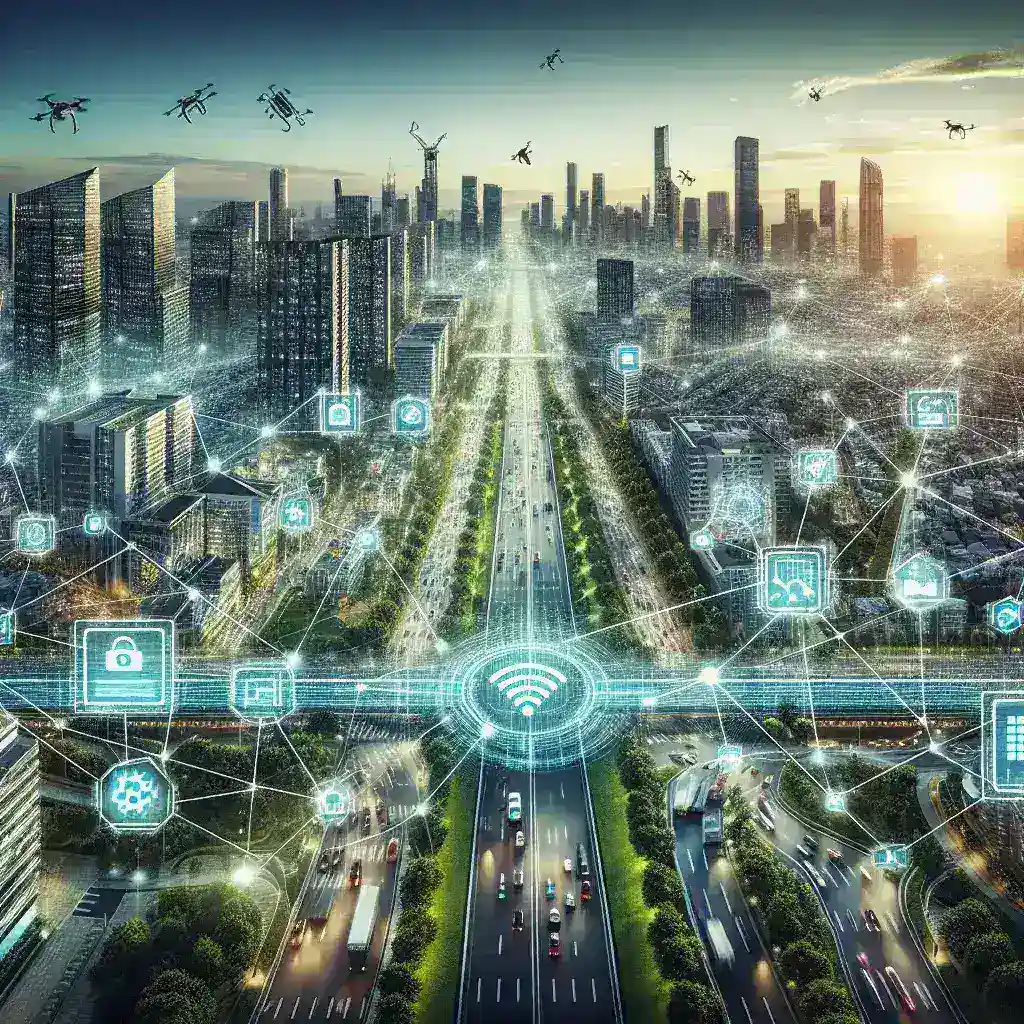The integration of descargar video de Twitter technology into our everyday lives marks a significant leap forward in digital transformation. One of the most groundbreaking advancements is the development of 5G networks, which are set to revolutionize the Internet of Things (IoT) and smart cities globally. This article delves into how 5G technology is shaping IoT and the infrastructure of smart cities, providing a comprehensive look at its impact and future potential.
The Basics of 5G Technology
5G, or fifth-generation wireless technology, is the latest iteration in mobile network technology, following 4G LTE. Its primary advantages include higher speeds, lower latency, and the ability to connect a massive number of devices simultaneously. These characteristics make 5G a pivotal enabler for the IoT and smart cities.
Speed and Efficiency
One of the most significant benefits of 5G technology is its speed. With data transfer rates up to 100 times faster than 4G, 5G enables a plethora of new applications and services that were previously impossible. This high speed facilitates real-time data processing and instantaneous communication between devices, which is crucial for IoT systems and smart city infrastructures.
Low Latency
Latency, the time it takes for data to travel from one point to another, is drastically reduced with 5G. This low latency is essential for applications requiring immediate responses, such as autonomous vehicles, remote surgeries, and real-time analytics. In smart cities, reduced latency ensures that systems like traffic management and emergency response function seamlessly and efficiently.
Massive Connectivity
5G technology is designed to connect a massive number of devices within a small area. This capability supports the widespread deployment of IoT sensors and devices throughout smart cities. With 5G, urban areas can deploy millions of connected devices, including smart meters, environmental sensors, and connected vehicles, enhancing data accuracy and system reliability.
The Impact of 5G on IoT
The IoT ecosystem stands to gain immensely from the adoption of 5G technology. By improving connectivity and communication between devices, 5G enhances the capabilities of IoT systems in several key ways.
Enhanced Device Communication
5G technology enables seamless communication between IoT devices, ensuring that data can be transmitted and received without delays. This improved communication is critical for applications such as smart home systems, where various devices like thermostats, security cameras, and smart appliances need to work together efficiently.
Improved Data Management
With 5G, the massive amounts of data generated by IoT devices can be managed more effectively. Enhanced data processing and real-time analytics allow cities to make informed decisions quickly, improving urban management and services. For example, smart waste management systems can optimize collection routes based on real-time data, reducing operational costs and environmental impact.
Greater Reliability
5G networks provide more reliable connections for IoT devices, minimizing downtime and ensuring constant connectivity. This reliability is crucial for critical infrastructure such as healthcare systems, energy grids, and transportation networks, which depend on uninterrupted data flow to maintain their operations.
The Role of 5G in Smart Cities
Smart cities leverage advanced technologies to enhance the quality of life for their residents. 5G plays a critical role in this evolution, enabling cities to deploy innovative solutions that improve urban living.
Smart Traffic Management
One of the most notable applications of 5G in smart cities is traffic management. By connecting traffic lights, sensors, and vehicles, cities can optimize traffic flow, reduce congestion, and improve safety. Real-time data analytics allow for dynamic traffic control, ensuring smoother and faster travel across urban areas.
Enhanced Public Safety
5G technology enhances public safety through improved surveillance and emergency response systems. High-definition cameras and sensors connected via 5G can monitor public spaces more effectively, while low-latency communication ensures rapid response to emergencies.
Environmental Monitoring
Smart cities can use 5G-enabled IoT sensors to monitor environmental factors such as air quality, noise levels, and weather conditions. Real-time data from these sensors enable cities to address environmental issues promptly and implement solutions to improve public health and quality of life.
Optimized Energy Use
5G technology facilitates the development of smart grids and energy management systems. By connecting various energy sources and consumer devices, 5G enables more efficient energy distribution, reducing waste and lowering costs. Smart meters and connected appliances can communicate with the grid to optimize energy use based on real-time demand.
The Future Potential of 5G in IoT and Smart Cities
The future of 5G technology holds immense potential for further transforming IoT and smart cities. As 5G networks continue to expand and evolve, we can expect to see even more innovative applications and services emerge.
Advancements in Autonomous Vehicles
5G technology will play a crucial role in the development and deployment of autonomous vehicles. With low-latency communication and real-time data processing, self-driving cars can navigate complex urban environments safely and efficiently, reducing traffic accidents and improving transportation efficiency.
Healthcare Innovations
The healthcare sector stands to benefit significantly from 5G-enabled IoT systems. Remote monitoring, telemedicine, and robotic surgeries will become more advanced and accessible, improving patient care and outcomes. Real-time data from connected health devices can also help in early diagnosis and prevention of diseases.
Smart Buildings and Homes
5G will enable the proliferation of smart buildings and homes, where various devices and systems are interconnected to enhance energy efficiency, security, and comfort. Smart buildings can adjust lighting, HVAC systems, and security features automatically based on real-time data and user preferences.
Urban Agriculture
5G technology can support urban agriculture initiatives by connecting sensors and automated systems that monitor soil conditions, water usage, and plant health. This connectivity allows for more efficient and sustainable food production within cities, reducing the need for long-distance transportation and contributing to local food security.
In conclusion, the impact of 5G on IoT and smart cities is profound and far-reaching. With higher speeds, lower latency, and massive connectivity, 5G technology is set to revolutionize urban living and make our cities smarter, safer, and more efficient. As we continue to explore and harness the potential of 5G, the possibilities for innovation and improvement in various sectors are virtually limitless.

